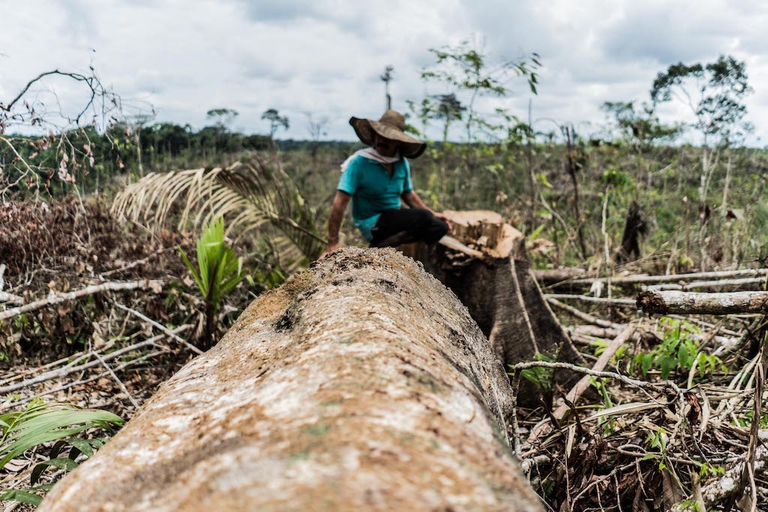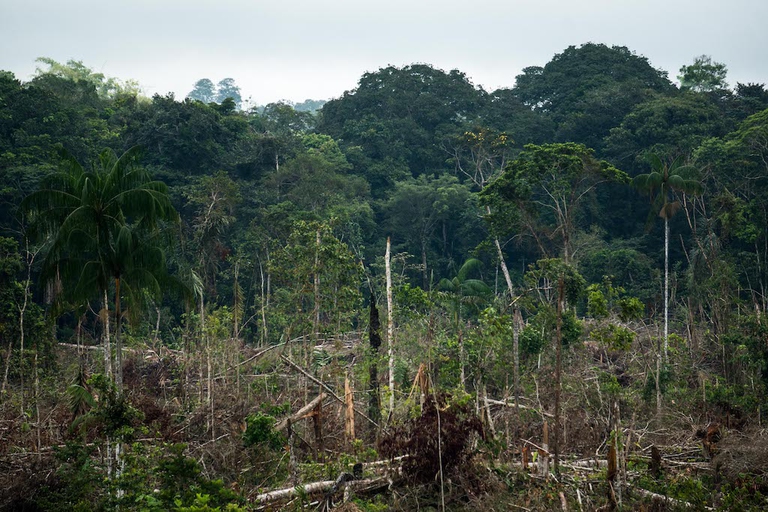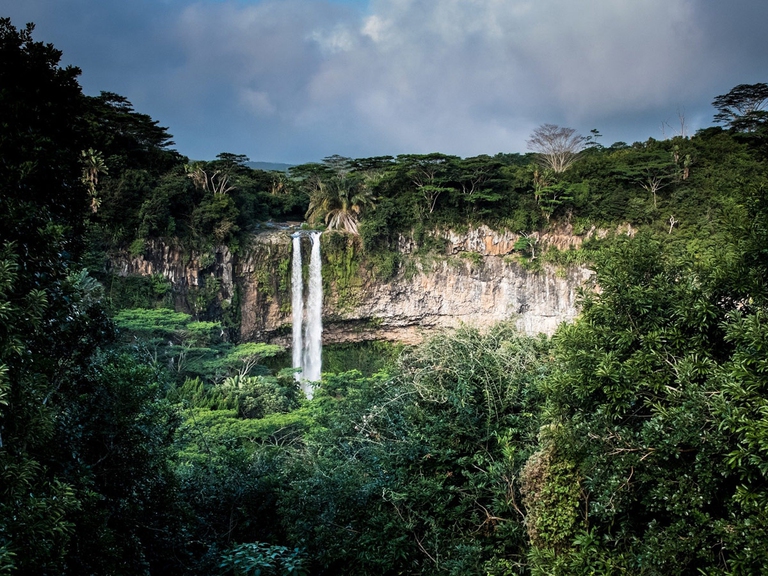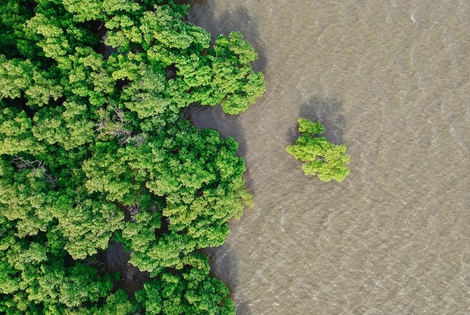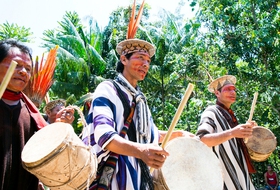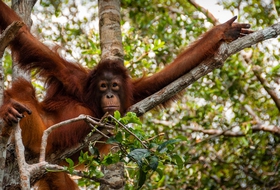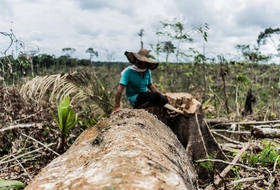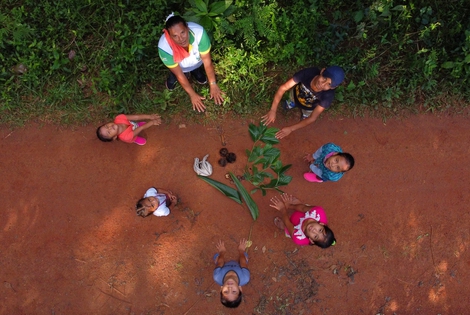
The Amazon became an alternative classroom during the pandemic. Now, the educational forest in Batraja, Bolivia, lives on to teach children and adults the value of nature.
Forests are home to 80 per cent of the world’s terrestrial biodiversity. This year’s International Day of Forests highlights the urgent changes needed to save them.
This March 21, the International Day of Forests is putting the spotlight on the great variety of animal, plant and other life supported by the world’s forests with the theme, “Forests and Biodiversity: Too precious to lose.” While this observance encourages us to appreciate the benefits of forests—from Pacific coastal redwoods to tropical mangroves—it is more of an urgent call to action than a celebration.
Forests are home to most life on land, an estimated 80 percent of the world’s terrestrial biodiversity. This natural wealth goes far beyond the 60,000 species of trees that have been identified to date. It includes plants, animals, organisms and ecosystems which help to keep our air, soil and water healthy and which provide us with food, fuel and shelter. Roughly one billion people depend directly on forests for their food, and that figure does not include the farms that rely on nearby forests for pollinators like bees and bats.
Read more: To save biodiversity we need to protect 30% of the Earth’s surface
All this biodiversity is under serious threat from climate change and other forces that are chipping away at the world’s forests on a daily basis. An estimated 73 percent of deforestation in the world is driven by the clearing of land for agriculture. How, then, do we meet our needs as a growing population without damaging the very forests and biodiversity on which we all depend?
The conservation and sustainable management of forests is essential to biodiversity. So, too, is a better understanding of the conditions and activities that affect forests, such as food and timber production, urbanization, poverty, and land access.
Last year, the first-ever global report on food-related biodiversity, produced by the Food and Agriculture Organization of the United Nations (FAO), showed that biodiversity-friendly practices in food production were actually on the rise. Eighty percent of the 91 countries surveyed indicated they were using organic agriculture, sustainable forest management, ecosystem restoration or other approaches to conserve and restore forest resources.
Read more: Industrial agriculture isn’t feeding the world, only agroecology can
Still, much more needs to be done. Many countries have started to introduce policies and other tools to support sustainable land use but often, these fall short of yielding results. There are various reasons for this, including insufficient implementation or not targeting the true causes of biodiversity loss.
We need to improve the actual implementation of existing solutions, if we want to manage forests and biodiversity in more sustainable ways. We need to back up these efforts with increased monitoring of the effects of various factors on biodiversity, and greater legal and financial incentives for people and investors who influence decisions on land use.
FAO recently adopted a strategy to help countries mainstream biodiversity-friendly practices across agricultural sectors. The aim is to support the development of strategies, policies and practices that reflect the essential role that forests play in various aspects of our lives, whether they sit within protected areas, near agricultural fields, or in urban areas.
Many of the people whose daily activities have the greatest impact on the health of our forests are also among the poorest and most marginalized in the world. Their situations need to be taken into account in encouraging more sustainable forest use.
Read more: How organic agriculture in Cuba saved its population from hunger
In Gambia, for example, massive losses of wild foods have forced forest communities to turn more frequently to industrially-produced foods to supplement their diets. The government is trying to restore forest biodiversity by giving communities direct ownership of the land on which they have long depended. People now have a greater stake in keeping forests healthy. They are learning more efficient ways to plant crops, control pests, hunt, and gather wood, thus reducing stress on the land and water.
Countries’ efforts to improve the ways in which people interact with the world’s forests are informed by a list of internationally-agreed benchmarks, the Aichi targets, which were adopted in 2010 to help safeguard global biodiversity, and which are set to be revised towards the end of this year. Amid the growing media noise over action to address urgent challenges like climate change and hunger, it cannot be stressed enough how important it is for countries to make these targets a priority in planning.
Read more: India, tribal women are leading the conversion to organic agriculture
It is vital, too, for all of us to take an interest in the political and organizational decisions that can affect our natural forests. There is no quick way to substitute all those forest creatures and ecosystems which have evolved over millions and millions of years.
Forests, with their wealth of biodiversity, have always sustained our lives. It is time for us to return the favour.
Siamo anche su WhatsApp. Segui il canale ufficiale LifeGate per restare aggiornata, aggiornato sulle ultime notizie e sulle nostre attività.
![]()
Quest'opera è distribuita con Licenza Creative Commons Attribuzione - Non commerciale - Non opere derivate 4.0 Internazionale.
The Amazon became an alternative classroom during the pandemic. Now, the educational forest in Batraja, Bolivia, lives on to teach children and adults the value of nature.
Our species took its first steps in a world covered in trees. Today, forests offer us sustenance, shelter, and clean the air that we breathe.
Bangladesh suffered widespread damage as a result of Cyclone Amphan. Yet the Sundarbans mangrove forest acted as a natural barrier protecting the country from further destruction, as it has done countless times before.
On top of a 2.4 million dollar compensation, the indigenous Ashaninka people will receive an official apology from the companies who deforested their lands in the 1980s.
The tapir was reintroduced into Brazil’s Atlantic Forest, the country’s most at-risk ecosystem. The species can play a key role in the forest’s recovery.
After a legal battle that lasted two years, Indonesia’s Supreme Court has revoked the permit to mine for coal in the forests of South Kalimantan in Borneo.
The list of human and animal victims of the Australia wildfires keeps growing – one species might already have gone extinct – as the smoke even reaches South America.
Areas where the FARC guerrilla used to hold power in Colombia have faced record deforestation. Farmers cut down trees, burn land and plant grass for cows. Because, “what else can we do for a living here in the Colombian Amazon”? An intimate report from the heart of the felled forest in Caquetá.
Refusing the anthropocentric vision and respecting the laws of ecology is the only way to safeguard the future of our and all other species, Sea Shepherd President Paul Watson argues in this op-ed.
